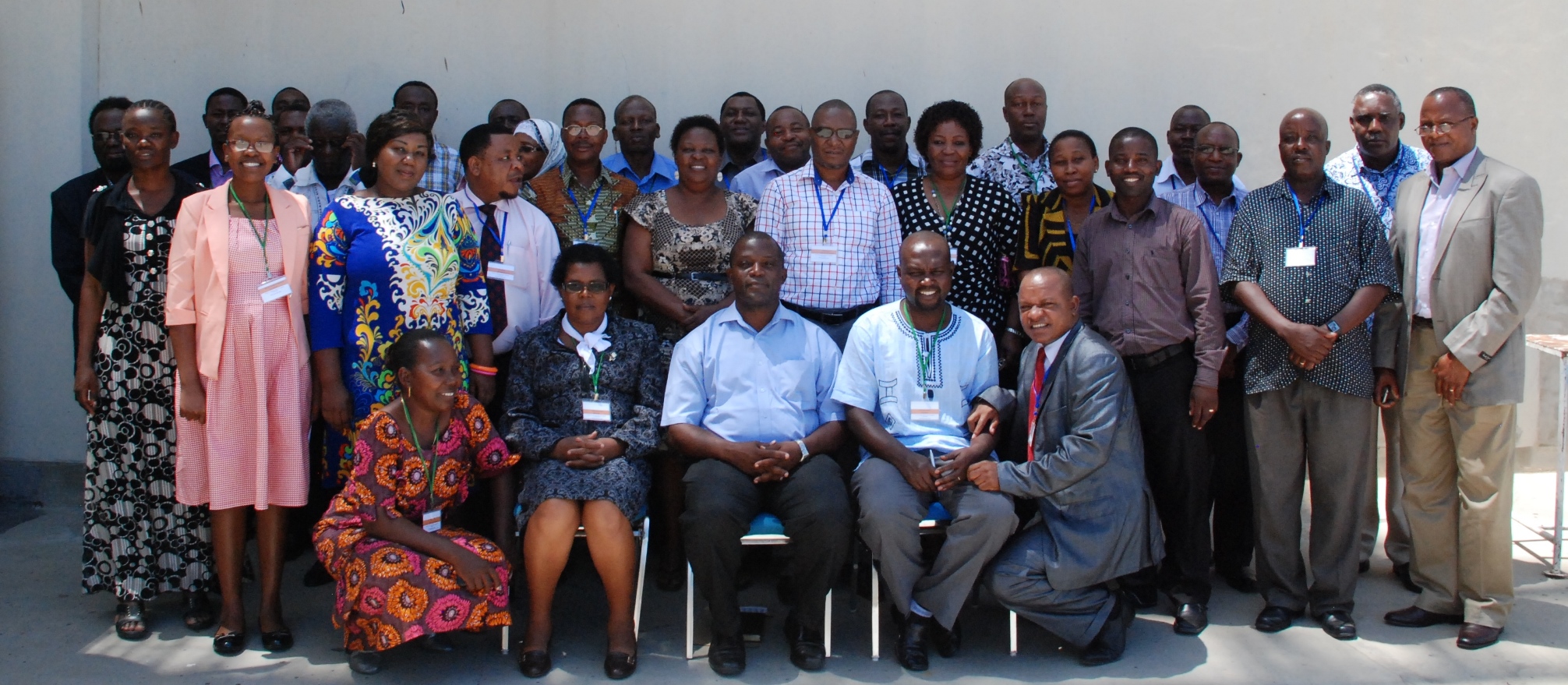
Climate change actors from governmental and non-governmental organizations present at the workshop. At the centre (in a blue shirt) is the guest of honor, Dr Julius Ningu, the Director for Environment at the Vice Presidents’ Office.
Different partners drawn from policymakers from central and local governments, national and international research organizations, civil society, the private sector and the media in Tanzania have formed a Learning Alliance to facilitate the sharing of information, knowledge, and experiences on issues of climate change.
The Alliance which was launched on 16 December 2014 at a meeting in Dar es Salaam, Tanzania, was sponsored by the Policy Action for Climate Change Adaptation (PACCA) project that is led by the International Institute of Tropical Agriculture (IITA).
Speaking at the event, Dr Julius Ningu, the Director for Environment at the Vice Presidents’ Office, noted that climate change had affected every sector in different ways and therefore, there were many actors on the ground working on climate change adaptation through different initiatives.
“However, there is little sharing and learning across the different actors and initiatives,” he said. “Therefore the creation of PACCA Learning Alliance will encourage communication and dialogue among policy actors and on-the-ground implementers of climate change adaption initiatives to enhance cooperation in the policy implementation process in the country.”
“The Learning Alliance will work as a platform where different stakeholders will come together to exchange climate change knowledge and engage in actions that seek to influence policy and actions,” added Perez Muchunguzi, a multi-stakeholder specialist with IITA based in Kampala, Uganda.
By the end of the workshop, the participants identified the challenges and gaps in the climate change adaptation policies for the Learning Alliance to address. These included a lack of adequate financial resources, human capacity, and institutions and policies to address climate change issues adequately as well as constraints related to the generation and sharing of knowledge and a general lack of awareness on climate change issues. They therefore formed four working groups to address each of these constraints.
PACCA aims to use interdisciplinary science-based recommendations to influence the development and implementation of policies that encourage the adoption of climate-smart agricultural practices across multiple scales and actors.

No Comments